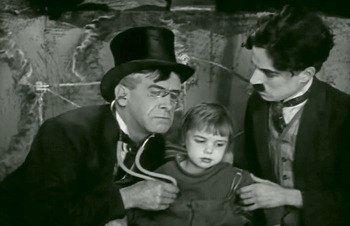MBS taskforce recommends urgent item numbers be restricted to daytime GPs who are called out for an urgent patient assessment
Medical deputisers will lose the ability to claim urgent Medicare item numbers for house calls under recommendations by the MBS Review Taskforce.
The panel calls for use of the four urgent item numbers (597, 598, 599, 600) to be restricted to GPs in regular daytime practice who are called out for an urgent patient assessment.
Taskforce Chair Professor Bruce Robinson said it was the strong view of the Urgent After-hours Working Group and the Taskforce that the growth in urgent after-hours services did not reflect clinical need in Australia.
“After-hours services are important, but we must ensure that patients get the right test or treatment first time, every time and not be subjected to unnecessary and inappropriate care,” Professor Robinson said.
In a report released today, the taskforce said the current structure of the urgent after-hours items supported comparatively low-value medical care and did not represent value for money for the taxpayer.
Specifically, the report calls for reform only of the four urgent item numbers, which attract substantially higher rebates than non-urgent services. For example, the most commonly used urgent item 597 carries a rebate of $129.80, compared with $$74.95 for a non-urgent call-out (5023) or $49.00 for an after-hours Level B consult at a doctor’s rooms (5050).
The other after-hours items would remain unchanged, according to the report.
“The rebates for urgent after-hours services should only be payable in circumstances where a GP who normally works during the day is recalled to work for management of a patient who needs, in the opinion of the GP, urgent assessment,” the report says among its key conclusions.
“The higher rebate recognises the additional clinical value provided by, and lifestyle and financial imposts on, GPs who deliver these services to their own patients, the practice’s patients or patients of other local practices where on-call work is shared.
“In this setting it is more likely that there will be better patient triage, based on the GP’s (or a closely supervised GP trainee’s) knowledge of the patient’s circumstances, better access to patient records facilitating management, and better follow-up to ensure continuity of care.”
Where a business had been established specifically to provide care in the after-hours period (including a medical deputising service) then all of the other (non-urgent) items for after-hours services should remain available to these entities, the report said.
It also said urgent after-hours attendances should not be available where the patient had made an appointment before the after-hours period (which begins at 6pm on weeknights).
The taskforce is now inviting consultations on the after-hours proposals, among a number of other preliminary reports in its third round of reform proposals.
The suggested after-hours reforms are in line with recommendations from the RACGP.
But they are certain to result in an outcry of protest from medical deputising services such as National Home Doctor Service, whose group commands some 50% of the after-hours market.
Since roughly 30% of the deputisers’ call-outs are billed as “urgent”, and most of their doctors are not vocationally registered GPs, the changes outlined in the report could have a significant effect.
The panel said it investigated use of urgent after-hours item numbers in response to concerns raised by doctors’ groups and Medicare data showing the number and cost of home visits was far in excess of population growth.
In the five years to 2015-16, the number of urgent after MBS services grew by 150% to more than 1.87 million a year, while standard GP services grew just 15%.


